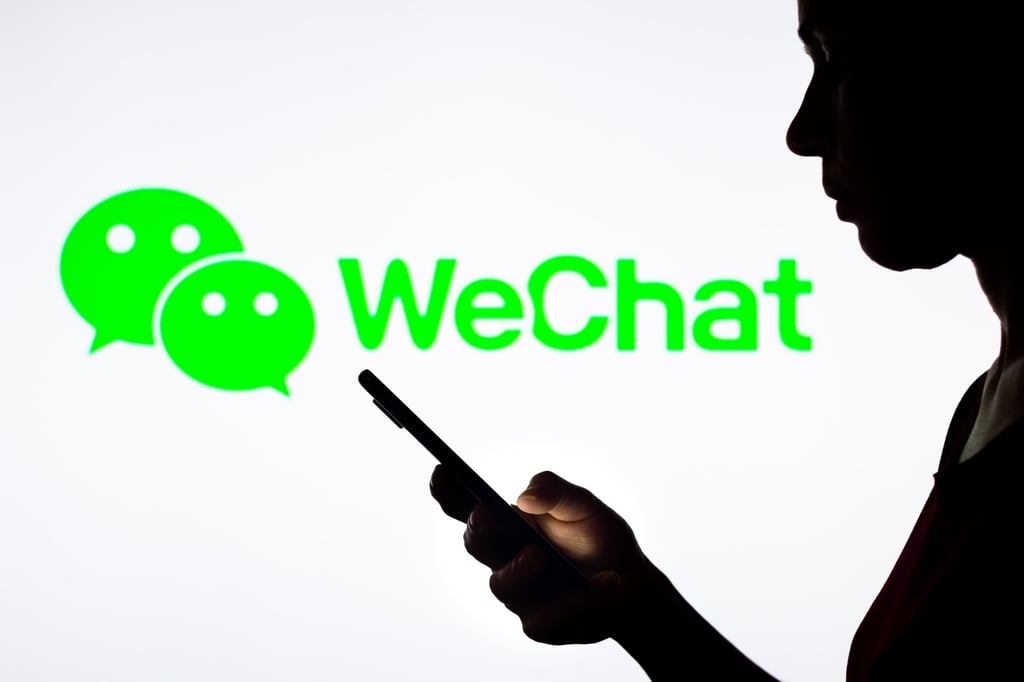Thousands of Hongkongers have lost money to fraudsters posing as customer service staff from mainland Chinese app WeChat and e-commerce platform Taobao, with losses reaching HK$584.8 million (US$75 million) in the first seven months of 2024.
Police said they had arrested 102 people between January and June in connection with the scams, noting one victim reported losing HK$4.5 million.
Among the 2,716 cases of customer service fraud reported to police, more than half involved scammers pretending to work for WeChat.
According to police, the scams typically involve fraudsters posing as staff and claiming the victims had signed up for an insurance policy or other services through the relevant platform.
“If residents wish to cancel the order, the scammer will ask the person to hand over their bank details for verification, as well as paying a sum of ‘earnest money’ to cancel [the order],” said Theodora Lee Wai-see, a superintendent with the force’s Anti-Deception Coordination Centre.
Police data showed most of the WeChat-related customer service scams took place between June and July, with losses during the two months totalling HK$238 million.
The largest financial loss involving a single case was reported in May after scammers duped a 51-year-old social worker into handing over HK$4.5 million in a day over claims she needed to cancel an insurance policy she bought on WeChat.
Police said the recent cases had mainly involved WeChat, Taobao and telecoms firm China Mobile, with fraudsters often demanding victims to quickly follow their instructions.
Superintendent Lee said that although some victims had never used the platforms cited, fraudsters cast a wide net online to find potential targets and used methods such as FaceTime or text messages to contact people.

Another victim, a clerk in his fifties, was among those scammed by fraudsters posing as fake WeChat customer support and was told he needed to cancel his purchase of an insurance plan in one day or HK$70,000 would be deducted from his bank account.
“My bank account was linked to WeChat Pay, then I began to think if the two things were linked,” he said.
“The scammer proceeded to say the service would come into effect soon, and if I didn’t cancel it today, fees would be deducted.”
Believing he would get the money back, the clerk then paid more than HK$300,000 to the scammer as “earnest money” to verify his identity.
He only realised that he had been scammed when the scammers instructed him to open a bank account with a virtual bank to buy a loan and transfer the funds.
Another popular tactic involved scammers posing as staff with Alibaba Group’s e-commerce marketplace Taobao, with the company mentioned in 639 cases reported over the first seven months of 2024.
Among those cases, 95 per cent of them took place between January and May.
Scammers also pretended to work for China Mobile, with the telecommunications company used as a guise in 321 cases reported between January and July.

Senior Superintendent Alice Tsang Nga-sze of the Commercial Crime Bureau said the force had met representatives from Tencent, the operator of WeChat, in late July.
“We will proactively clamp down on this kind of scams, as well as collaborate with different government departments, banks, the telecommunications sector and the food and beverages industry to boost our anti-deception promotions,” she said.
Responding to a Post inquiry, a Tencent spokesman said it had sent multiple rounds of anti-fraud reminders to users on the platform and beyond, as well as activating a registered text messages sender ID to verify communications with users.
“We strongly condemn criminals impersonating our staff to commit fraud. Weixin or WeChat service teams will never contact users by phone call or SMS unless the user has requested to be contacted via our app or official websites,” he said.
Chan Chi-kin, head of Hong Kong and Macau of Tmall Taobao World, reminded users that payment and refund processes usually take place within the Taobao mobile app, with any payment information collected via the app or an official customer service line only.


